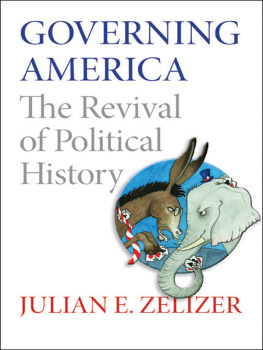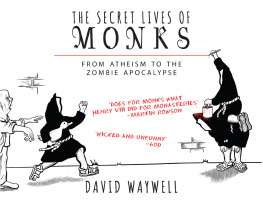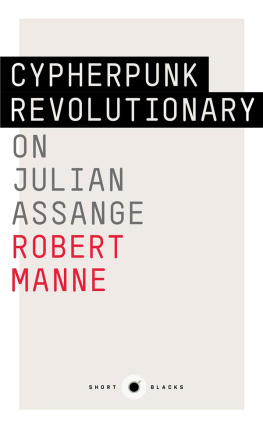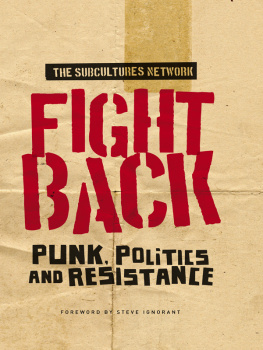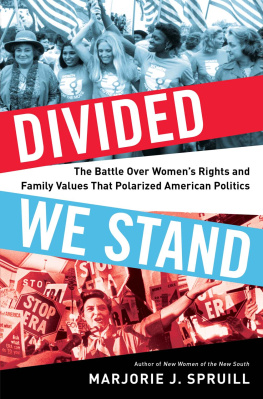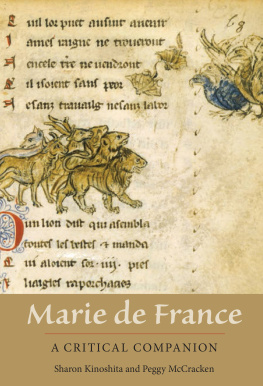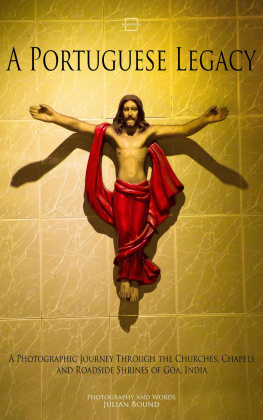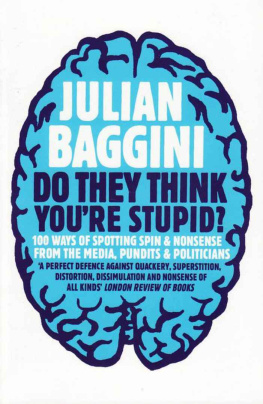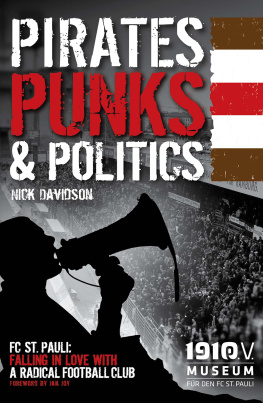Punks, Monks and Politics
Punks, Monks and Politics
Authenticity in Thailand, Indonesia and Malaysia
Edited by
Julian CH Lee and Marco Ferrarese
London New York
Published by Rowman & Littlefield International, Ltd.
Unit A, Whitacre Mews, 26-34 Stannary Street, London SE11 4AB
www.rowmaninternational.com
Rowman & Littlefield International, Ltd. is an affiliate of Rowman & Littlefield
4501 Forbes Boulevard, Suite 200, Lanham, Maryland 20706, USA
With additional offices in Boulder, New York, Toronto (Canada), and Plymouth (UK)
www.rowman.com
Selection and editorial matter Julian CH Lee and Marco Ferrarese 2016
Copyright in individual chapters is held by the respective chapter authors.
First paperback edition published 2018.
All rights reserved . No part of this book may be reproduced in any form or by any electronic or mechanical means, including information storage and retrieval systems, without written permission from the publisher, except by a reviewer who may quote passages in a review.
British Library Cataloguing in Publication Data
A catalogue record for this book is available from the British Library
ISBN: HB 978-1-78660-020-2
ISBN: PB 978-1-78660-021-9
Library of Congress Cataloging-in-Publication Data Available
ISBN: 978-1-78660-020-2 (cloth : alk. paper)
ISBN: 978-1-78660-022-6 (electronic)
ISBN: 978-1-78660-021-9 (pbk : alk. paper)

The paper used in this publication meets the minimum requirements of American National Standard for Information SciencesPermanence of Paper for Printed Library Materials, ANSI/NISO Z39.48-1992.
Printed in the United States of America
Contents
Julian CH Lee and Marco Ferrarese
Marco Ferrarese
Frederik Holst
Joseph N. Goh
Julian CH Lee
Nikkola Mikocki-Bleeker, Julian CH Lee and Ceridwen Spark
Erik Hannerz
Sean Martin-Iverson
E. Douglas Lewis
Greg Acciaioli
Pablo Henri Ramirez Didou
Viriya Sawangchot
Alessio Fratticcioli
Sean Matthew Ashley
Rebekah Farrell
Julian CH Lee acknowledges the assistance and support given to him at the Centre for Global Research and the School of Global, Urban and Social Studies (GUSS) at RMIT University. The colleagues in the Centre and in the Research and Innovation Committee in GUSS have provided valuable research support that has enabled Lee to undertake important work associated with the creation of this volume. Lee also appreciates the ongoing support and dedication to this volume from Marco Ferrarese who has enabled it to come into being. Lee also gratefully thanks his partner Sarah for her diverse support which made his work on this project possible.
Marco Ferrarese thanks his co-editor Julian CH Lee for his support for this volume since its inception during his PhD candidature at Monash University Malaysia. He also thanks the International Society for Metal Music Studies for their support, as well as that from the Punk Scholars Network. Others who were crucial in seeing this book project to completion include his parents Maurizio and Tundra Ferrarese, his brother Diego and his partner Kit Yeng Chan, whose patience was always able to buoy his creative spirits.
Julian CH Lee and Marco Ferrarese
Authenticity is much sought after; being described as inauthentic is an insult or an embarrassment. The quality of authenticity is a virtue (Martin 2012: 5163) and its attainment desirable. One might think that authenticity, relating as it does to that which is true and genuine, should be easily acquired or achieved, and yet doing so everywhere is often difficult or fraught. And furthermore, it would be considered by many as impossible to achieve. There was never a time when a society existed without the influences of people of other cultures. There is no self that isnt conditioned by the demands of society to be true to. Why then is authenticity sought after?
Figure I.1 was taken in 2016 in a supermarket in Melbourne, Australia. On the shelves and above them were signs advertising the presence of Authentic International Food. Mexican, Japanese and Indian food products tempted shoppers who walked down the aisle. Like the signs at the supermarket, the previous sentence deliberately avoided the phrasing food from Mexico, Japan and India, because many of the products on those shelves, despite being for example Mexican, were not imported from Mexico. Therefore, in what sense could a product be Mexican?
In a discussion about authenticity and transcultural interactions, Elizabeth Kath describes a similar dilemma. She was once a member of a band that played Cuban music in Australia, but recalls seeing a flyer produced by a member of the band to advertise one of its gigs.
Upon seeing the words Cuban band written across the flyer I felt immediately uncomfortable with the description. Could a band that plays Cuban songs really call itself a Cuban band if most of its members were not Cuban?... One band members view was that this was a non-issue because the band had a Cuban musical director. Another member felt that the Cuban in Cuban band referred to the music, not the band members. (Kath 2015: 23)
Figure I.1 Photograph taken at Coles supermarket in Melbourne, Australia. Photograph by Julian CH Lee.
What the supermarket and Cuban band examples indicate is that there is no certainty as to what constitutes something as duly carrying a particular label, but that at the same time, such labels are valued. The fact that there are differences in meaning behind terms such as Product of Australia, Manufactured in Australia and Packaged in Australiadifferences which would not be intuitively apparent (Clemens 2015)demonstrate both the desire for attribution and the difficulties around it.
Compared to the hurdles to accurately describing the origin of products, determining the authenticity of cultural practices is infinitely more difficult. In reality it is impossible. Despite the fact that, by contrast to reality, cultures are imagined as discrete, bounded units, each unique (Handler 1986: 2; see also Palmer 1992: 32), societies in our era of globalization cannot but be influenced by neighbours, by exposure to the languages, or by the ideas, behaviours and products of people far away. Therefore, as Kath notes with respect to Latin dance and music,
the theme of cultural authenticity, one that frequently arises directly or indirectly in conversations and interactions in the world of Latin dance and music, is one that transculturation calls into question. In short, if culture and cultural practices are by their very nature always hybrid, reconfiguring and transmuting, how can there be authentic culture? (Kath 2015: 26)
And thus we return to our question of Why is authenticity sought after?
The question is difficult, but one that this volume addresses by examining case studies from three Southeast Asian countries: Malaysia, Indonesia and Thailand. We chose these countries for several reasons. First is that they are located in Southeast Asia, a region of intercultural contact as a result of a long history of intra-regional human mobility for reasons including, but not limited to, trade. Anthony Reid (2004) has described how cities such as Melaka, Majapahit and Ayutthaya, in what are now the territories of Malaysia, Indonesia and Thailand, respectively, were each a cosmopolisan urban formation which is plural in culture (2004: 1).


 The paper used in this publication meets the minimum requirements of American National Standard for Information SciencesPermanence of Paper for Printed Library Materials, ANSI/NISO Z39.48-1992.
The paper used in this publication meets the minimum requirements of American National Standard for Information SciencesPermanence of Paper for Printed Library Materials, ANSI/NISO Z39.48-1992.

